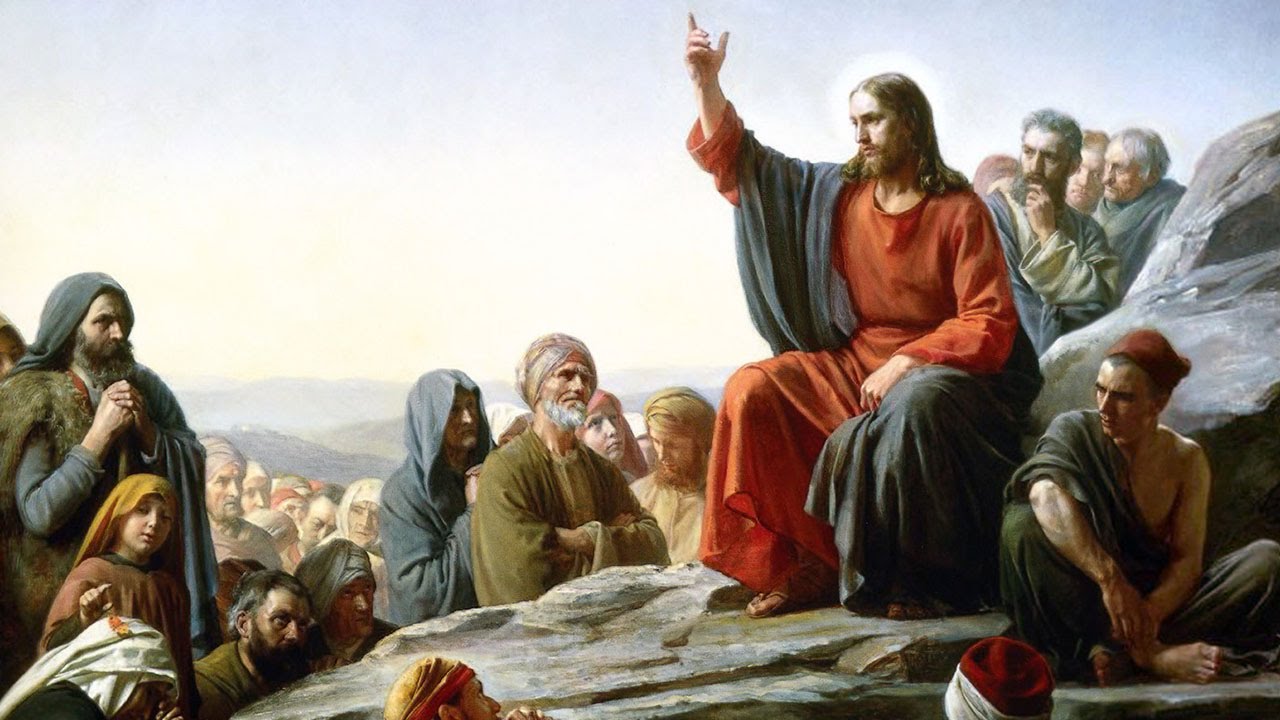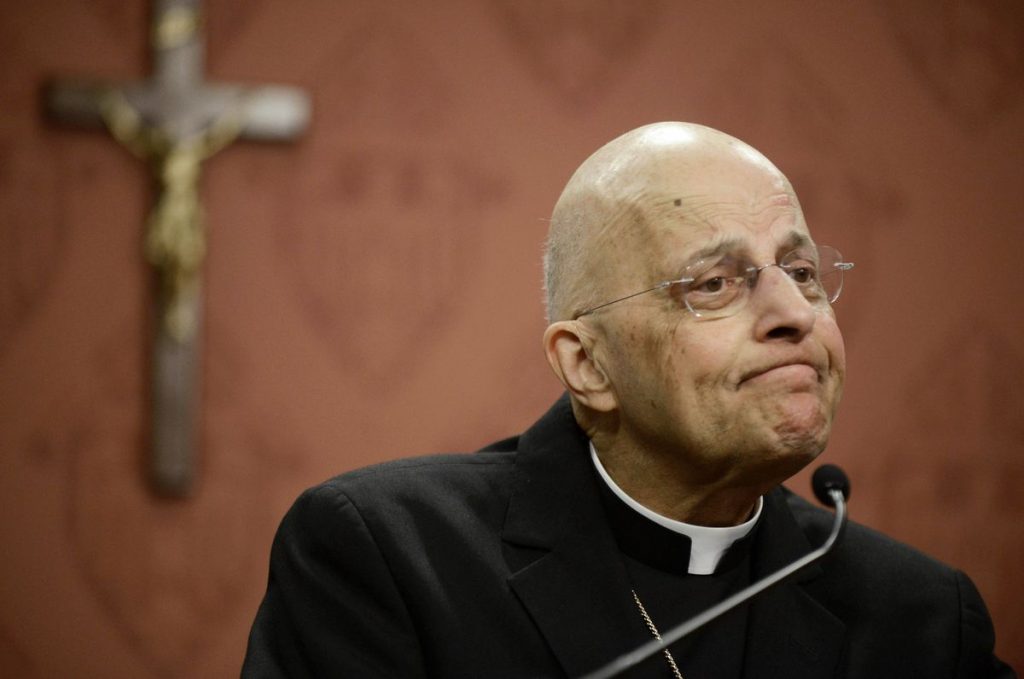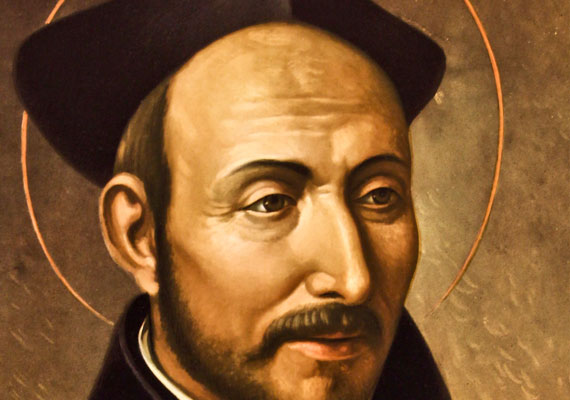
The new issue of Crucible has been published and includes several articles and other resources to do with homiletics. I note that the editors have called an hiatus on the journal for now, given their work loads and other commitments. If you are interested in taking on some editorial commitments and have the requisite abilities to do so, you might want to contact the journal to make yourself known.
All posts by Michael O'Neil
Ash Barty, Don Bradman, Grace and Virtue
 I have enjoyed watching Ash Barty play tennis for several years now, and her win in Paris last weekend—her first Grand Slam title—was the icing on the cake. What is it I like?
I have enjoyed watching Ash Barty play tennis for several years now, and her win in Paris last weekend—her first Grand Slam title—was the icing on the cake. What is it I like?
To begin, she has extraordinary talent. Ash is a pint-sized giant killer, unafraid to face those taller and stronger than she is, and with impressive trophies already in the cabinet. She has a never-say-die attitude, and seems like she doesn’t know when to quit. If she was the kind to throw in the towel perhaps she might have done so in the Paris Semi-Final against Amanda Anisimova. Barty was up Five–Love in the first and lost it Five–Seven. She was down Three–Love in the second, and it must’ve seemed like a good time to quit. But she did not and went on to win the Semi and then the Final as well. Nevertheless, when all is said and done, she knows it is just a game.
Equally impressive, however, is that she is so down-to-earth, so ordinary in the best sense. With so many egos and prima-donnas strutting around, especially amongst the just-as-talented Australian male players, Ash is refreshingly different. Asked in January whether she really did not fear any of the women on the professional circuit, Ash thought for a moment before responding, “Fear won’t get you anywhere mate.” After she won the Miami Open in March and lifted her world ranking into the top ten she said, “It’s amazing what happens when you put your hopes and dreams out into the universe and do the work, you know? It’s amazing.”
I could be wrong but I don’t think we should take that literally, as though she really believes the ‘universe’ responds to our hopes and dreams—a not uncommon modern idolatry—but more symbolically: decide what you hope for, put yourself out there, do the work, back yourself. Otherwise expressed: put aside fear, focus on your hopes, do the work, see what happens.
 So far I have not said anything remotely Christian. But there is grace here too, creational grace at least. In a pre-final interview with her first coach, he recalled meeting her as a very young child and noting that she had hand-eye coordination like no one he had ever seen. But grace does not operate on its own without works—even saving grace. Certainly we are saved without works but in order to do good works (Ephesians 2:8-10). And Ash Barty has worked. To the natural advantages she gained at birth and in the course of her upbringing she has added hard work, consistent work, probably lonely work many times, unseen work, seemingly unrewarded work, except she has been rewarded, and not merely in winning the French Open: she has become who she is, a better person.
So far I have not said anything remotely Christian. But there is grace here too, creational grace at least. In a pre-final interview with her first coach, he recalled meeting her as a very young child and noting that she had hand-eye coordination like no one he had ever seen. But grace does not operate on its own without works—even saving grace. Certainly we are saved without works but in order to do good works (Ephesians 2:8-10). And Ash Barty has worked. To the natural advantages she gained at birth and in the course of her upbringing she has added hard work, consistent work, probably lonely work many times, unseen work, seemingly unrewarded work, except she has been rewarded, and not merely in winning the French Open: she has become who she is, a better person.
Australian cricket great Don Bradman once said,
When considering the stature of an athlete or for that matter any person, I set great store in certain qualities which I believe to be essential in addition to skill. They are that the person conducts his or her life with dignity, with integrity, with courage, and perhaps most of all, modesty. These virtues are totally compatible with pride, ambition and competitiveness.
Again, Bradman does not refer to grace here, and his comments may reflect an earlier time in Australian life. Far earlier still, Aristotle commended the virtuous life. The measure of one’s life is not merely one’s achievement but the kind of person they have become. If this is true of persons in general it must especially be true of those who are Christians, to whom are given the Beatitudes, the fruit of the Spirit, the grace of our Lord Jesus Christ. And remember Peter’s words: ‘Add to your faith, virtue…’ (2 Peter 1:5).
I am indebted to Will Swanton’s article in
The Australian June 10, 2019 for the citations in this post.
Re-Thinking Baptism
 The new edition of the Pacific Journal of Theological Research is now available. I am very pleased to have been part of this issue. It began when I was asked, over a year ago now, to speak at the induction of my friend, Steve Ingram, as the Chair of the Council of Australian Baptist Ministries. Given that so many leaders of the Australian Baptists were to be in the room, I chose to speak on what I considered a significant issue for the future and health of the church. Afterwards, the journal editors agreed to publish the essay, and indeed to devote a themed issue to the topic if we could find additional essays—which we did!
The new edition of the Pacific Journal of Theological Research is now available. I am very pleased to have been part of this issue. It began when I was asked, over a year ago now, to speak at the induction of my friend, Steve Ingram, as the Chair of the Council of Australian Baptist Ministries. Given that so many leaders of the Australian Baptists were to be in the room, I chose to speak on what I considered a significant issue for the future and health of the church. Afterwards, the journal editors agreed to publish the essay, and indeed to devote a themed issue to the topic if we could find additional essays—which we did!
The issue includes my essay in addition to some very good essays by Bill Leonard of Wake Forest University in North Carolina, Anne Klose of Malyon College in Brisbane, and Frank Rees, former principal of Whitley College in Melbourne. It is well worth reading.
Love, and the Law: A Meditation
 And because of the increase of lawlessness, the love of many will grow cold
And because of the increase of lawlessness, the love of many will grow cold
(Matthew 24:12).
In my devotional reading this morning, this verse stood out for me, specifically, the relation between love and the law. Many contemporary Protestants think in terms of the incompatibility of love and law, that love and the Law are ‘antithetical.’
But this verse in Matthew suggests we revisit this relation. Matthew is very concerned that we consider the abiding validity of the ancient law: ‘until heaven and earth pass away’ not ‘the smallest stroke or letter shall pass from the Law until all is accomplished’ (Matthew 5:18). And, of course, scholars continue to debate the meaning of what Jesus meant when he said he came not to abolish but to fulfil the law. Jesus, in Matthew 7:23, also excludes those ‘who practise lawlessness’ from his eschatological salvation (cf. 13:41).
It is clear that in his own life and teaching Jesus was dedicated to the law, although he also interpreted it idiosyncratically, in accordance with the Israelite prophetic tradition, and called his disciples to faithfulness with respect to this vision. He was concerned that they adhere to and practise the ‘weightier matters of the Law’ (Matthew 23:23), while not neglecting the other provisions. His teaching in Matthew 5:21-48 shows that he approaches the Law as instruction that points God’s people toward an understanding of God’s righteousness which is far more demanding than a mere adherence to its various stipulations. It is clear that Jesus also considered some aspects of the law as passé, at least as Mark understood his teaching (see Mark 7:14-23).
All this background should be considered when approaching this verse and its context in Matthew 24. In my meditation this morning it seemed to me that love and the Law are closely integrated with one another, and not at all set in opposition. This is not to say that the law is love, or even that the law can produce the desired love, although the Law certainly commanded God’s people to love their neighbour (Leviticus 19:18), and even the alien amongst them (v. 34). The law regulates human life and society, providing boundaries and restraint for the self. Remove these restraints—let lawlessness increase—and love grows cold, says Jesus. Lawlessness as an ethos, gives free reign to the self, and it is this that is antithetical to love, for love’s first concern is for the other.
Jesus’ words should challenge the kind of Christian antinomianism that finds no place at all for the Law. Frederick Dale Bruner agrees:
One of the best criteria for distinguishing false from true teachers will be the treatment of God’s law: false teachers will reject it, while true teachers will honor it, especially as it is interpreted messianically by Jesus (The Churchbook: Matthew 13-28, revised & expanded edition, 488).
Playing a Long Game
 I came across this quote in a recent newspaper article in the aftermath of George Pell’s conviction for sexual abuse of two children. It is a prediction made by fellow Cardinal Francis George of Chicago, who looks a great deal like former Senator David Leyonhjelm, who died of cancer in 2015, and who predicted hard times for faithful church leaders in an increasingly aggressive secular western culture:
I came across this quote in a recent newspaper article in the aftermath of George Pell’s conviction for sexual abuse of two children. It is a prediction made by fellow Cardinal Francis George of Chicago, who looks a great deal like former Senator David Leyonhjelm, who died of cancer in 2015, and who predicted hard times for faithful church leaders in an increasingly aggressive secular western culture:
“I expect to die in bed; my successor will die in prison and his successor will die a martyr in the public square. His successor will pick up the shards of a ruined society and slowly help rebuild civilisation, as the church has done so often in human history.”
We might ask whether this exhibits a pessimistic or fatalist attitude, or is otherwise an exhibition of gross arrogance and a delusion of grandeur. Is western society actually on such a downward trajectory that it is heading for ruin? Might this be the pessimistic ‘hope’ of a churchman mourning the loss of public acknowledgement and position, one whose vision of the Good has been thoroughly superseded by social progress in the modern era?
I suspect that many voices would argue that this is in fact the case. The myth of progress is still deeply entrenched and virile in the western imagination. And Cardinal George was promoted to the position by John Paul II, a recognition of his traditionalist understanding of central Roman Catholic commitments.
Nevertheless, I also suspect that his prediction might contain a more realistic appraisal of the contemporary situation than such critics allow, even if his suggested time frames prove to be inaccurate. He anticipates, probably rightly, an increasingly hostile confrontation of the church by the surrounding culture in years to come. He also believes, rightly or wrongly, that the present trajectory of the culture will lead to its ruin in years to come. Finally, he is convinced that the church will not only endure but survive the ignominy of its cultural rejection, and will be present in the midst of the coming cultural and civilisational crisis to ‘pick up the shards of a ruined society, and help rebuild civilisation.’
What I liked about the quote is his multi-generational vision. Cardinal Francis George was playing a long game. And in this, he was fundamentally correct. If the church today is focussed only on its own ‘success’ and growth, and is not also the church of the martyrs, and a community of humble service, I wonder whether it will survive the coming days.
See: Tess Livingstone, “‘Faith, innocence’ sustain stoic leader in darkest hour” The Weekend Australian, March 2-3, 2019, 18.
See also the appreciative eulogy on Cardinal Francis George by George Weigel.
Scripture on Sunday – James 3:15
 James 3:15
James 3:15
This wisdom is not that which comes down from above, but is earthly, natural, demonic (NASB).
Such ‘wisdom’ does not come down from heaven but is earthly, unspiritual, of the devil (NIV).
In this verse James continues his contrast of the behaviour that stands opposed to his understanding of wisdom presented in verse thirteen. The way of jealousy, envy, and selfish ambition may have an appearance of wisdom, but it is not that wisdom which is ‘from above.’ Indeed, for James, it is not even ‘wisdom’ at all (note the scare-quotes used in the NIV). Literally James says, ‘This is not the wisdom from above…’ (ouk estin hautē hē sophia anōthen; οὐκ ἔστιν αὕτη ἡ σοφία ἄνωθεν), where the this is a demonstrative pronoun referring back to the behaviour of those he is chastising in verse fourteen. James refuses to use the term wisdom to describe this manner of life.
James describes this manner of life using three graphic adjectives, which are listed in an order of increasing alienation from God (Davids, 152; Vlachos, 123). First, it is earthly (epigeios, ἐπίγειος) as opposed to that which is ‘from above,’ heavenly, of the earth or belonging to the earth, or arising solely from human existence. Second, it is natural, the Greek word psychikē (ψυχική) referring to the life in which human feeling and human reason reign supreme (Moo, 134). It has to do with that which is governed by the senses or sensual appetites and as such, refers to life apart from the divine Spirit—‘unspiritual.’ Finally, demonic (daimoniōdēs, δαιμονιώδης) simply means that which comes from or pertains to demons.
Where jealousy, envy and selfish ambition are the order of the day, the manner of life is not that which is from above, divine in origin and nature, meek and full of good works (v. 13). Rather, it is human or even demonic in origin and character, although it seems better to assign this wisdom a human rather than demonic origin. This person might be better described as selfish, as ‘worldly-wise,’ rather than demonically inspired, although the latter is possibly the case in some circumstances. Moo’s comment, however, is insightful:
The wisdom that does not produce a good lifestyle (v. 13) is, in sum, characterized by ‘the world, the flesh, and the devil.’ In each of these ways it is the direct antithesis of ‘the wisdom that comes from above’—heavenly in nature, spiritual in essence, divine in origin (134).
James is evidently contrasting two types of teachers (3:1) or two types of leadership, and aligning them with two types of wisdom. The fulcrum between the two seems to lie in the fundamental impulse at work in each model. Is the leader’s activity, work and motive directed toward the self (self-promotion, improvement, or aggrandisement), or the kindliness of God toward others, and the promotion and benefit of their welfare? Most leaders are not under the thrall of demons, but their leadership may have characteristics that are opposed to the purposes, way and wisdom of God, and detrimental to the welfare and common good of those people for whom they are responsible. Further, while many religious teachers and leaders claim to be spiritual, if their manner of life is that described here by James, they are in fact unspiritual and devoid of the Holy Spirit. ‘“You claim,” says James, “to have the Holy Spirit. Impossible! You are inspired, all right—you are inspired by the devil!” (Davids, 153).
In the contemporary world of organisations (including churches and other Christian agencies), we have much leadership technology—technical knowledge and skill; depth of understanding with respect to the pragmatic dynamics of leadership in diverse communities, contexts, and human affairs; skill in diagnosis, management, and application; a vast range of tools, resources, and equipment to enhance our capacities. Is such technology ‘wrong,’ or something to be avoided? Perhaps not. But James focusses on the character of leadership in verse thirteen (and also verses seventeen and eighteen) contrasting it with the alternate mode in verses fourteen to sixteen. To the extent that leadership technology subverts kingdom priorities such as those enumerated in 2:5 or 1:27—personal engagement with the lowly and apparently ‘insignificant’—it is ‘earthly, natural, and demonic.’
A Prayer for Sunday

Lord, teach me to be generous,
to serve you as you deserve,
to give and not to count the cost,
to fight and not to heed the wounds,
to toil and not to seek for rest,
to labor and not to look for any reward,
save that of knowing that I do your holy will.
(Attributed to Ignatius of Loyola,
but likely appeared much later,
perhaps inspired by his life and work)
The following prayer, however, was used by Ignatius in his Spiritual Exercises:
Take, Lord, and receive all my liberty,
my memory, my understanding,
and my entire will,
All I have and call my own.
You have given all to me.
To you, Lord, I return it.
Everything is yours; do with it what you will.
Give me only your love and your grace,
that is enough for me.
A Prayer for Sunday
 Lord,
Lord,
In this bounded space of just a few days,
As I begin a process of temporary withdrawal
from the world of endless activity and pressing engagements;
As I begin, too, a withdrawal from the endless noise and distraction of the world,
and an addictive attachment to its bustling ‘importance’ and allurements—
ephemera at best;
In this liminal space of just a few days,
Still my heart and quiet my soul
And let my whole self be centred afresh and anew in you.
Open my heart to God—Creator, Redeemer and Sanctifier, and
Open my soul to all that is good and true and beautiful
in this world, my companions, and my neighbour.
Speak, Lord, and give me the hearing heart of a servant.
Amen.
Scripture on Sunday – James 3:14
 James 3:14
James 3:14
But if you have bitter jealousy and selfish ambition in your heart, do not be arrogant and so lie against the truth.
The juxtaposition of and sudden shift from verse 13 to verse 14 indicates that James is contrasting some others with those who are wise and understanding. In place of good conduct, and works done in the meekness of wisdom, he finds envy, bitterness, selfish rivalry, ambition and strife.
The word translated ‘jealousy’ (zēlos; ζηλος) can have either positive or negative connotations. Positively, it might refer to zeal, ardour, or enthusiasm; negatively, it might speak of indignation, envy, or jealousy. Literally, it means to have ‘ferment of spirit’ (Friberg), signifying an inner life active and generative, boiling and bubbling away; but what is being produced? James obviously uses the word in its negative sense, pairing it with another word pikros (πικρος, cf. v. 11)—bitter—which has the sense of being pointed and sharp, and used figuratively as it is here, refers to a resentful attitude that may also be harsh or cruel.
‘Selfish ambition’ (eritheia; ἐριθεία) means just what it says, though it also carries the sense of rivalry or factionalism. Moo notes that it is a comparatively rare word:
In its only pre-New Testament occurrences (in Aristotle), the word refers to the selfish ambition, the narrow partisan zeal of factional, greedy politicians. This meaning makes excellent sense here in James (Moo, 133).
Together these terms portray individuals or even groups within the congregation at odds with one another, striving not with but against one another, seeking an advantage over the over, and jealous or resentful of any success that the other may achieve.
James sees these attitudes and attributes as lodged in the heart, at the centre of one’s personality. Vlachos (122) notes that James’ language indicates that his listeners are ‘harbouring’ these attitudes in their hearts. If this is the ‘spirit’ at work in a person’s heart, they are actually far from wise and understanding. Rather, these attitudes are evidence of an ‘arrogance’ or ‘boastfulness’ that James prohibits (mē katakauchasthe; μὴ κατακαυχᾶσθε), an expression of the belief in one’s superiority over others, and as such the very antithesis of the ‘meekness of wisdom.’ Such a person claiming to be wise and understanding is in fact ‘lying against the truth’ (pseudesthe kata tēs alētheias; ψεύδεσθε κατὰ τῆς ἀληθείας): their very attitudes and resulting actions betray them. It is not surprising, then, that James prohibits these attitudes. He is calling upon his hearers either to stop this behaviour, or more generally, to avoid becoming these kinds of persons at all (Vlachos, 122-123).
It is worth pausing for a moment to consider the little word zēlos which is used by James. Zeal in itself can be a commendable quality, if one is zealous for the right things in the right way. Titus 2:14, for example, exhorts believers to be ‘zealous for good deeds.’ One can be zealous for the things of God, for his word, his truth, his justice, and his mission, in ways that are life-affirming and kingdom-oriented. But it is also possible that this commendable zeal might tip over to become the kind of harsh and bitter zeal that James condemns here.
The problem is that zeal can easily become blind fanaticism, bitter strife, or a disguised form of rivalry and thus jealousy; the person sees himself as jealous for the truth, but God and others see the bitterness, rigidity, and personal pride which are far from the truth (Davids, 151).
How does this occur, and how might it be avoided? James would teach us that if we become convinced of our own rectitude in such a way that we are now against others, if we become partisan and competitive, angry and jealous, ever more determined to press our understanding upon those with whom we disagree, we have already passed beyond the tipping point. James would call us to return to the meekness of wisdom that displays itself good works kindly intended and executed.
Scripture on Sunday – James 3:13
 James 3:13
James 3:13
Who is wise and understanding among you? By his good conduct let him show his works in the meekness of wisdom.
James 3:13 begins a new little section in this epistle, following a long teaching on the power of the tongue which seems to have been directed at those in James’ congregations who sought to be teachers (3:1). The verse starts with a rhetorical question, literally, “is anyone among you wise and understanding?” Vlachos (120), however, suggests that the question functions as a conditional clause along the lines of, “If any of you are wise and understanding…” James intends to teach his readers what true wisdom actually looks like, and in so doing, adds to his statements in 1:26-27 about the nature of ‘true religion’ or what we might call ‘authentic spirituality.’
That sophos (‘wise’) has a moral sense in James is clearly seen in the description of wisdom that follows in these verses. Wisdom is not merely intelligence or knowledge. Richard Bauckham has suggested that wisdom is “the God-given ability of the transformed heart to discern and to practice God’s will. It is the way in which Torah is internalized, so that outward obedience to Torah flows from an inner understanding and embracing of God’s will expressed in Torah” (Bauckham, James: Wisdom of James, Disciple of Jesus the Sage, 152). God’s will as expressed in Torah is not merely known, but understood and embraced, and so brought to expression in one’s life, and in ways which go beyond a mere adherence to the letter of the law.
‘Understanding’ translates epistēmōn, which denotes the possession of expertise: “being knowledgeable in a way that makes one effectual in the exercise of such knowledge” (BDAG, 381). Together the terms portray the truly wise or spiritual person who understands both what the will of God is, and how it might be applied in the contingencies and circumstances of everyday life, and who actually applies it in this discerning way.
James’ question seems to assume that there are some among them who are actually ‘wise and understanding.’ Certainly there seem to be some in the congregation who claim to be wise, just as there are those who claim to be spiritual, to have faith, and perhaps, who boast in their riches. To those who would make a show of their wisdom, James counsels: display (deixatō, ‘show, demonstrate’ [cf. 2:18]) your wisdom by your good conduct. Make a show of your wisdom by and in your works. This verse, like James 2, contrasts words and works. True wisdom, like true faith, is revealed in works. Wisdom is displayed and recognised rather than claimed. Wisdom is revealed in the ‘beauty’ and ‘attractiveness’ of one’s life—the adjective kalos (‘good’) likely retaining here something of its classical meaning (Vlachos, 121). Just as true wisdom has its source in the good and generous God, so it shows itself in a good and generous life.
Such wisdom is also meek (en prautēti sophias). Wisdom does not parade itself with ostentatious boasting, or merely with words. It does not boast great things for itself, but quietly and consistently works. Many English translations speak of the gentleness of wisdom. Since it is likely that the phrase is qualifying the works which express wisdom, it indicates that these works are gentle, kindly intended and executed, and good.
There is a possibility that this verse is referring back to the first verse of the chapter, and thus to James’ warning about teachers. The role of teaching in the early Christian community provided an opportunity to display one’s wisdom in the performance of the rhetorical art. If we accept this interpretation (see Davids; cf. Moo), it has the advantage of holding the whole chapter together, and of elevating the significance of the teaching role either for good or for ill.
But the teacher’s wisdom is demonstrated and displayed, not in their rhetorical performance, nor in their mastery of the content, but in their character and relationships – do they bless or curse those made in the image of God (v. 9)? Is their tongue a fountain of goodness, justice and righteousness, or does it set the world aflame with the fires of Gehenna (v. 6)? Is their wisdom that which is revealed in humble and gentle service and the generous use of riches? James’ words provide a means of assessing whether or not those spiritual leaders and teachers in our midst are truly wise.
We can ask similar questions of our own lives and our own practice of Christian spirituality. Are we genuinely wise and understanding, in the sense set forth by James? Is our spirituality characterised by an active life of good works undertaken in gentleness and humility?